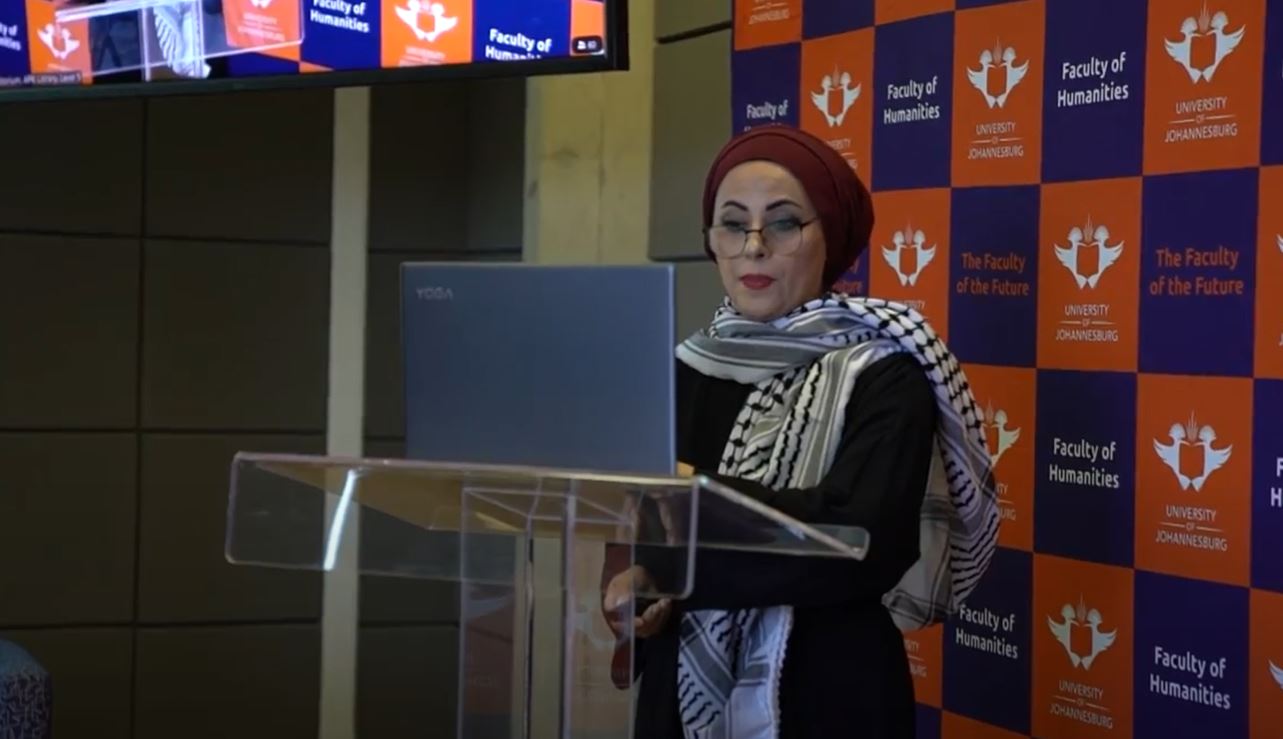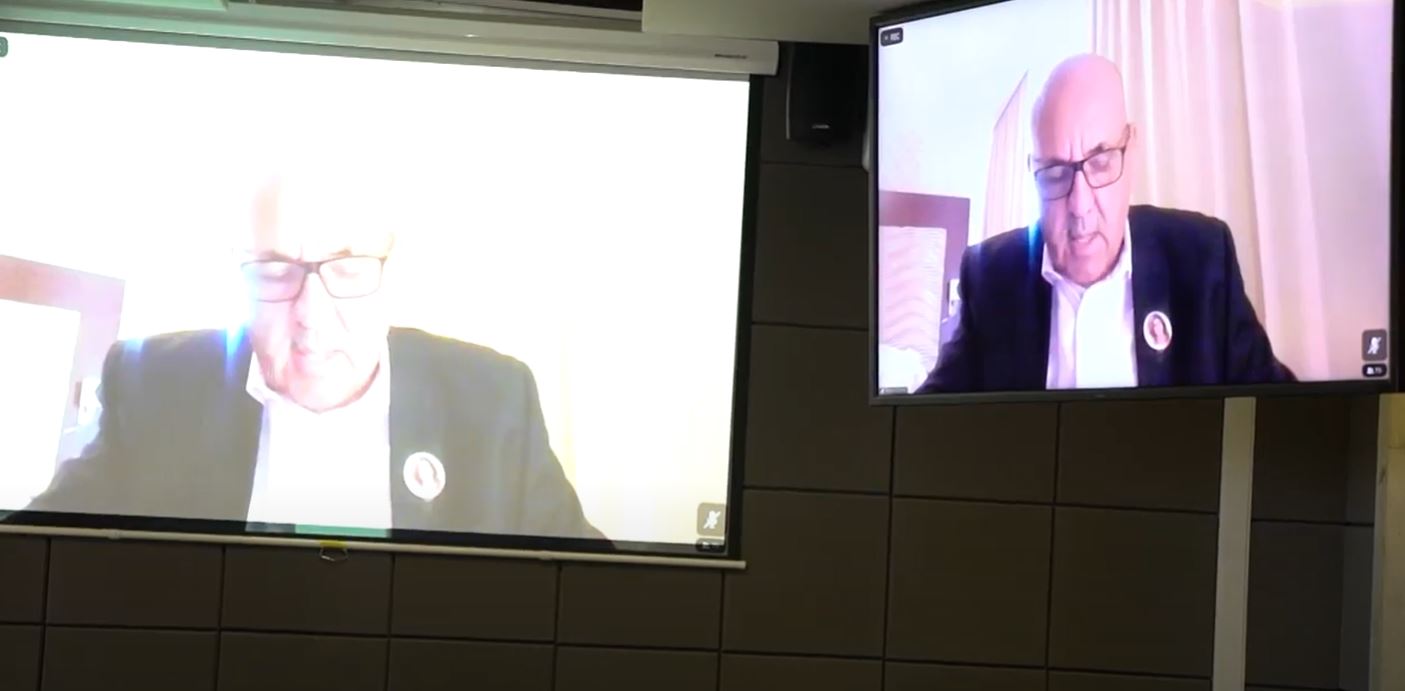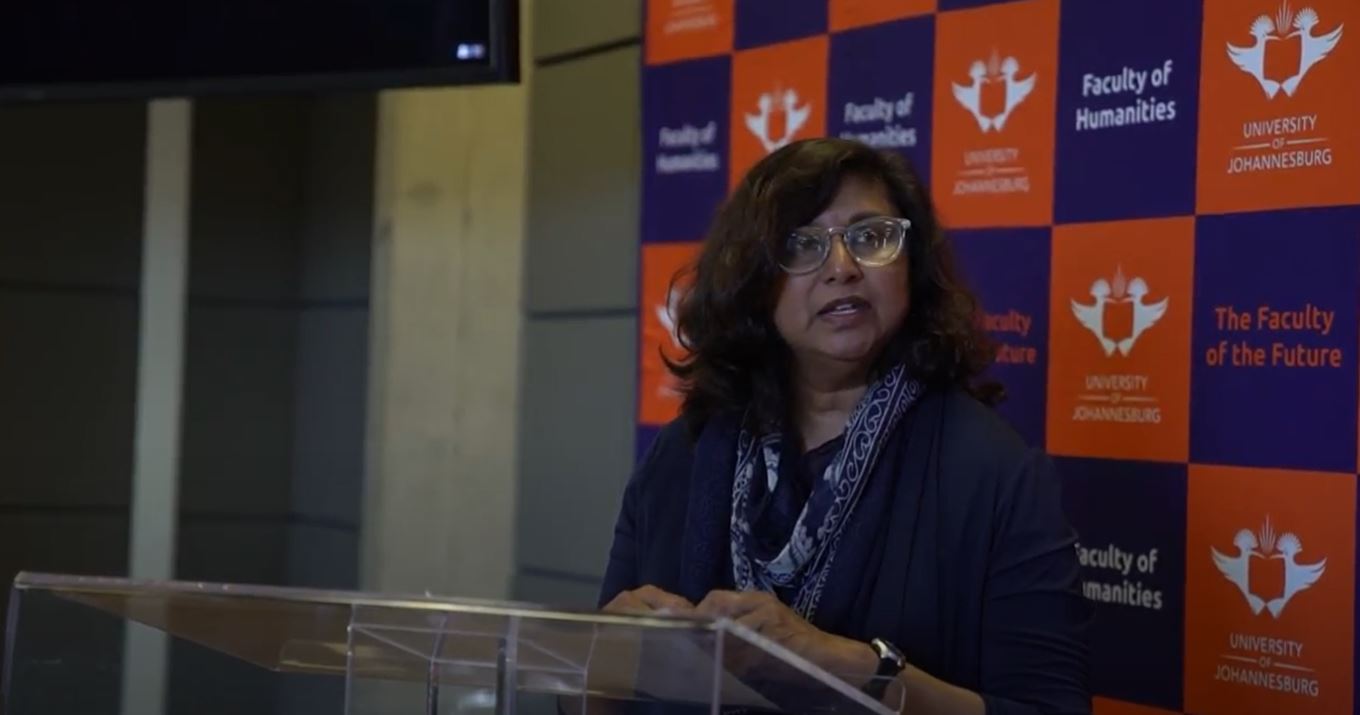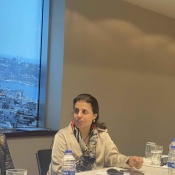Faculty of Arts at Birzeit University and University of Johannesburg hold the "Shireen Abu Akleh Inaugural Lecture"
In partnership with the Faculty of Arts at Birzeit University, the University of Johannesburg, South Africa, held the “Shireen Abu Akleh Inaugural Lecture” to commemorate Abu Akleh’s first death anniversary.
This extensive lecture will be held annually to shed light on issues related to apartheid and colonial oppression, particularly in Palestine and South Africa.
Walid Al-Omari, bureau chief of Al Jazeera in Jerusalem and Ramallah, attended the lecture via Zoom and expanded on Abu Akleh’s assassination and on evidence proving that she was deliberately killed by the Israeli occupation.
During the lecture, Jumane Qunnaisse, instructor at the Department of Media, delivered a presentation titled “Media under Occupation.” Qunnaisse talked about violations Palestinian reporters experience on the ground, highlighting the stories of other journalists who were also murdered by the Israeli occupation.
The event featured Palestinian poet Rafeef Ziadeh, who recited a poem that captures the emotions of loss and represents Abu Akleh not only as a journalist but also as a person.
The lecture received considerable attention from politicians, academics, researchers and students from both universities and attracted many attendees on the global and regional levels.
This lecture is part of an extensive collaboration between the University of Johannesburg and Birzeit University, which includes joint research and projects as well as academic exchange.
Dr. Munir Fakher Eldin, dean of the Faculty of Arts at Birzeit University, stressed the significance of promoting strategic collaboration between Birzeit University and the University of Johannesburg, emphasizing the similarity of research conducted at both universities, particularly in the humanities and social sciences. He also highlighted the interest of both universities in researching solidarity links between nations and producing emancipatory knowledge to combat colonialism and its impact on colonialized communities.









